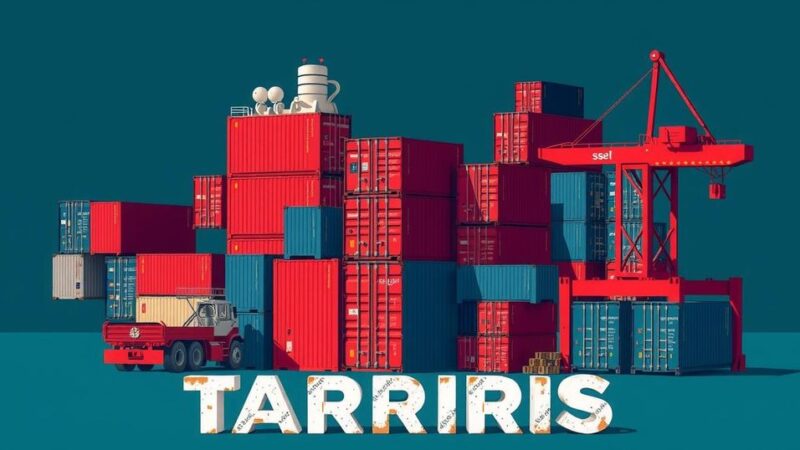The cut in U.S. aid jeopardizes tuberculosis treatment in Nigeria, risking vital services that require $404 million by 2025. Already, there is a $5 million funding gap, and the Global Fund has limited resources allocated for future years. Despite recent improvements in TB diagnosis and treatment rates, significant challenges persist, underscoring the need for increased domestic funding and concerted advocacy for TB services.
The recent reduction in U.S. aid threatens to widen the funding gap for tuberculosis (TB) treatment in Nigeria, raising serious concerns about the sustainability of essential TB services. By 2025, $404 million is necessary to maintain these services, putting the program at risk unless alternative funding can be identified. Between January and March of this year alone, a $5 million gap has arisen due to the U.S. government’s executive order affecting these funds.
The Global Fund, a principal partner in TB funding, has allocated only $89 million for TB services in 2025, with an alarming drop to $16 million for 2026. Nigeria had set an objective to treat 499,000 individuals by 2024; however, only 418,000 have been identified for treatment thus far. This shortfall has led to premature depletion of resources intended for 2025, raising red flags regarding the availability of TB medications.
Mr. Tajudeen Ibrahim, Executive Secretary of the Country Coordinating Mechanism of the Global Fund, noted that no immediate drug crisis exists. He clarified that the impact of the U.S. aid cut is primarily on case-finding activities within 18 states where U.S. support overlaps with Global Fund programs, with TB services in other states remaining stable under Global Fund financing.
Nigeria’s TB response is heavily dependent on international aid, with domestic funding remaining critically low. Between 2018 and 2023, domestic contributions to TB services fluctuated between 6% and 8%, while international funding varied significantly. As a result, funding gaps reached as high as 70% in 2023. Approximately half of the nation’s healthcare facilities provide TB treatment, although only 48% of local government areas are equipped with GeneXpert MTB/RIF diagnostic machines.
TB poses a significant health threat in Nigeria and worldwide. The World Health Organization’s 2024 Global TB Report ranks Nigeria first in Africa and sixth globally among high-burden TB countries. The nation accounted for 499,000 new TB cases and 71,000 TB-related deaths in 2023, constituting 20% of Africa’s TB burden and 18% of its TB deaths.
Notwithstanding these challenges, the Director of Public Health at the Federal Ministry of Health, Dr. Godwin Ntadom, reported that Nigeria achieved a record TB notification rate in 2024, surpassing 400,000 cases with 79% treatment coverage. Detection rates among children also rose significantly, with cases jumping from 8,293 in 2018 to 43,000 in 2024. Despite improvements, a substantial number of TB cases remain undiagnosed, contributing to ongoing transmission within communities.
World Tuberculosis Day, celebrated annually on March 24, seeks to heighten awareness and mobilize resources to combat TB. This year’s theme is “YES! WE CAN END TB – COMMIT. INVEST. DELIVER,” advocating for enhanced commitment to TB eradication. Dr. Ntadom emphasized the importance of a multi-sectoral approach in the fight against TB and reiterated the need for greater domestic investment in TB services.
The Stop TB Partnership Nigeria urged for increased domestic funding as international donor support declines. Dr. Queen Ogbuji-Ladipo, Acting Board Chair of the organization, stressed the necessity for policymakers and stakeholders to bolster advocacy for resources to maintain TB prevention and treatment programs. She stated, “As we all know, in light of the dwindling donor support, we need to intensify our advocacy for domestic resources for TB now more than ever.”
The decline in U.S. aid presents a significant hurdle for Nigeria’s tuberculosis treatment initiatives, potentially leading to severe disruptions in services. With critical funding gaps and low domestic contributions, stakeholders must urgently advocate for increased local investment to sustain TB treatment efforts. Continued international support and a multi-sectoral approach are vital in tackling the alarming TB burden in Nigeria, ensuring that treatment reaches those in need.
Original Source: leadership.ng






